Last week we looked at one citizen who did a public service for 95 million Americans.
We explored how this kind of modeling is the first step in creating a culture within which you can build great employees who become principled future owners. These are the kind of people who grow into owning your firm.
Noreen Harrington shared with the Colorado Financial Planning Association (COFPA) how she did this. Harrington, a Trustee of Adelphia University in New York, is a former managing director at Goldman Sachs, former co-head of Barclays Capital Fixed Income, Compliance Person of the Year (2003) and one of the Top Fifty Women in Finance (1997).
She didn’t just wake up one day and decide to do that act of public service for 95 million Americans. Her decision really started with a routine, day-to-day principled life. That’s where her life and ours may, perhaps, not differ.
Developing key employees is not only about what you implicitly model. It’s also about what you explicitly teach them in the mentoring process. One of the most deadly things we can teach and reinforce is what I call a cultural sinkhole.

A sinkhole seemingly appears out of nowhere. This one that opened up in Lafayette, Colorado in January shows how unexpected and dangerous a sinkhole can be. It threatens to suck everything above it into the ground.
Cultural sinkholes are similar. Without warning, poor leadership practices can lead to unexpected demise of a company. (See last week’s blog on the Canary Capital hedge fund).
Some leaders create company cultures that are so toxic that they bring everyone in the firm down into their cultural sinkhole, their moral morass. Harrington noted that some signs of this encroaching decay are
- No one can talk to the boss at the top. This kind of leader fosters an air of secrecy. An even more deadly variant: one leader Harrington named told his employees to make money–but he didn’t want to know how they did it.
- Signing documents and not asking questions. People signing documents without awareness of what they are signing perpetuates a culture of secrecy. Conversely, companies that invest in great compliance training for their employees reinforce a culture of transparency.
- Believing you can change the rules. Or, “I’m so big and important, the rules don’t apply to me.” Small indiscretions will snowball into a cultural sinkhole. You can’t break just one rule. Once you start down this path each successive step becomes both easier and more and more necessary to break rules to cover up past lies.
If, on the other hand, you wanted to create a principled culture, what are some specific actions you could take?
Keep your door open for your mentees.
You signal that you have nothing to hide and in fact you have a lot of wisdom you want to impart to enrich their lives with what you’ve learned. Lies love secrecy.
Compensate employees for keeping you and the firm OUT of trouble–not just for making the firm money.
If you truly care about your brand you ought to align your compensation with your values. Rather than “just” compensating them for revenue growth, consider compensating them for avoiding a reputational loss. (For example, whistleblowers are actually paid 15-30% of what the government recovers).
By-pass “grey” decisions.
Choose to avoid reputational risk. Once you taint your reputation, you’ve lost your good name and you’ve really lost everything. That is, unless you surreptitiously change your firm’s name and think everyone will forget what you did!
Toolkit:
Do you have a key employee? If so,
- What are you modeling to her?
- What do you want to model to her?
- What do you want to do differently?
If you don’t have a key employee, what is your first step to begin looking for that person and bringing her on board?
Sinkhole image: https://twitter.com/dailycamera/status/554657221846388737/photo/1



